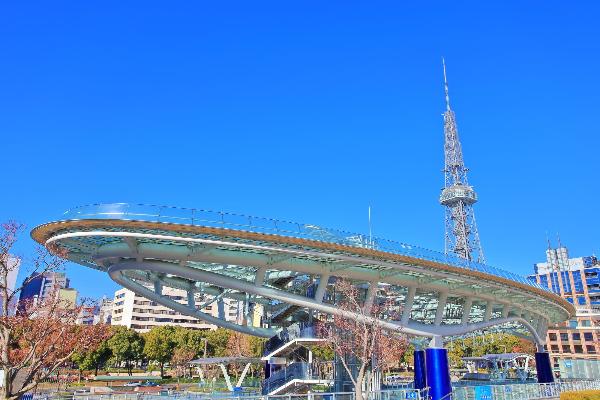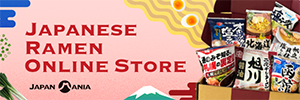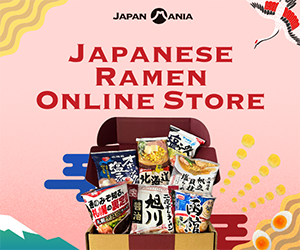Nagoya Castle, located in Aichi prefecture’s capital city Nagoya, is a fun destination for a day out. The castle, of course, was used throughout feudal Japan, and now serves as a historical theme park. Before or after your visit, you can visit the nearby restaurants to try some Nagoya specialty dishes, like hitsumabushi (grilled eel) and Nagoya tofu.
History of Nagoya Castle

Folding Screen (National Treasure) in Nagoya Castle
In the early 1500s, the castle was built by the Suruga province’s (present day Shizuoka prefecture) military governor, but was taken over by warlord Oda Nobuhide and renamed to Nagoya Castle.
Entering the 1600s, Tokugawa Ieyasu, the founder of the Tokugawa government that would last until 1867, took over the castle. In the late 1800s, the castle went out of use, along with the fall of the Tokugawa’s rule.
In 1930, the Nagoya Castle was designated as a national treasure. However, in 1945, the castle and the palace burned down during the Second World War.
The castle keep was reconstructed and stands today. Today, the castle serves as a historical theme park and as a museum. Nagoya Castle is also a popular cherry blossom spot in the spring.
Sights to see
Honmaru Palace

Honmaru Palace (National Treasure)
The Honmaru Palace in Nagoya Castle was considered one of the most well built castles in Japan before being burnt down in war. Although the building burnt down, some of the ceiling remained safe.
The palace was rebuilt over a span of 10 years, and finally opened in June 2018.
The wall painting, called “Chikurin-Hyokozu”, is designated as an Important Cultural Property. The whole painting is compromised of 1047 screens.
Inside Nagoya Castle
Nagoya Castle is now used as a historical amusement facility, where visitors can learn about the history of Nagoya and the castle.
At the photo spot, you can take a photo with a replica of the famous golden dolphin. The one at the photo spot is the same size as the one on the roof.
Visitors can also experience “ishi-hiki”, or rock pulling. This technique was used when making the stonewalls of the castle.

“Ishi-hiki” experience
There are also exhibitions in the castle. Inside the exhibitions, there are displays of swords and shields used during feudal Japan.
Kinshachi Yokocho

Kinshachi Yokocho
Kinshachi Yokocho, opened in March 2018, is a commercial facility dedicated to Nagoya’s specialty dishes, and is located at the foot of the Nagoya Castle. The facility is divided into the Yoshinao Zone, located by the Main Gate, and the Muneharu Zone, located by the East Gate.
Here are some of the restaurants where you can taste Nagoya’s famous dishes.
Nagoya Tofu KAWAGUCHI – 名古屋とうふ 河口

Tofu Dengaku
Nagoya Tofu KAWAGUCHI uses the freshest water and carefully picked soybeans to create their simply delicious tofu.
Here, you can taste tofu-dengaku, a dish of tofu covered in miso paste, another Nagoya specialty.
Hitsumabushi Nagoya Bincho

Jo Hitsumabushi
Hitsumabushi, or grilled eel, is another famous Nagoya dish. In Nagoya, eel is grilled on high-grade charcoal, called “binchotan”. Try the Jo Hitsumabushi at Hitsumabushi Nagoya Bincho!
Torikai Souhonke

Oyako-don
At Torikai Souhonke, you can taste the Nagoya Cochin Oyako-don rice bowl. A typical oyako-don is a rice bowl dish with chicken and egg. At Torikai Souhonke, Nagoya Cochin, a premier chicken brand, is used for the oyako-don.
The oyako-don made at Torikai Souhonke has won 4 years in a row at the National “Don” (rice bowl) Contest. The chicken and the egg are both rich in flavor and cooked to perfection.
Events
Nagoya Castle Spring Festival (Mar. to May)

Nagoya Castle’s cherry blossoms
Over 1,000 cherry blossoms trees bloom during the spring months at Nagoya Castle. There are seven different types of cherry blossoms, including the famous someiyoshino and the shidare-zakura (weeping cherry tree).
During the spring months, there are also beer tastings, kid’s events and street performances at the castle.
For the duration of the festival, Nagoya Castle is open from 9:00a.m. to 7:30p.m. (gates closed at 8:00p.m.)
Access
Nearest station: Meijo-koen Station (Nagoya Municipal Subway Meijo Line)
From Nagoya Station
【Nagoya Sta.】Higashiyama Line / for Fujigaoka
→【Sakae Sta.】Meijo Line / for Shiyakusho
→【Meijo-koen Sta.】→ about a 10-minute walk
From Chubu Centrair Airport
【Chubu Centrair Airport Sta.】Meitetsu Airport Line Limited Express / for Meitetsu Gifu
→【Kanayama Sta.】Meijo Line / for Sakae
→【Meijo-koen Sta.】→ about a 10-minute walk
Golden Dolphin (Shachihoko) Fact

The golden dolphin, referred to as “kin-shachi” by locals
The golden dolphin at the top of Nagoya Castle is made of real gold. The amount of gold was said to be worth around 1,940 coins during feudal Japan, which is about one to two billion yen (about 20 million US dollars) in current rates!
Information
1-1 Honmaru, Naka-ku, Nagoya-shi, Aichi
052-231-1700
9:00a.m. - 4:00p.m.
Year-end holidays
Adults: ¥500 Children (junior high school and below): free















_600x400.jpg)















_600x400.jpg)


